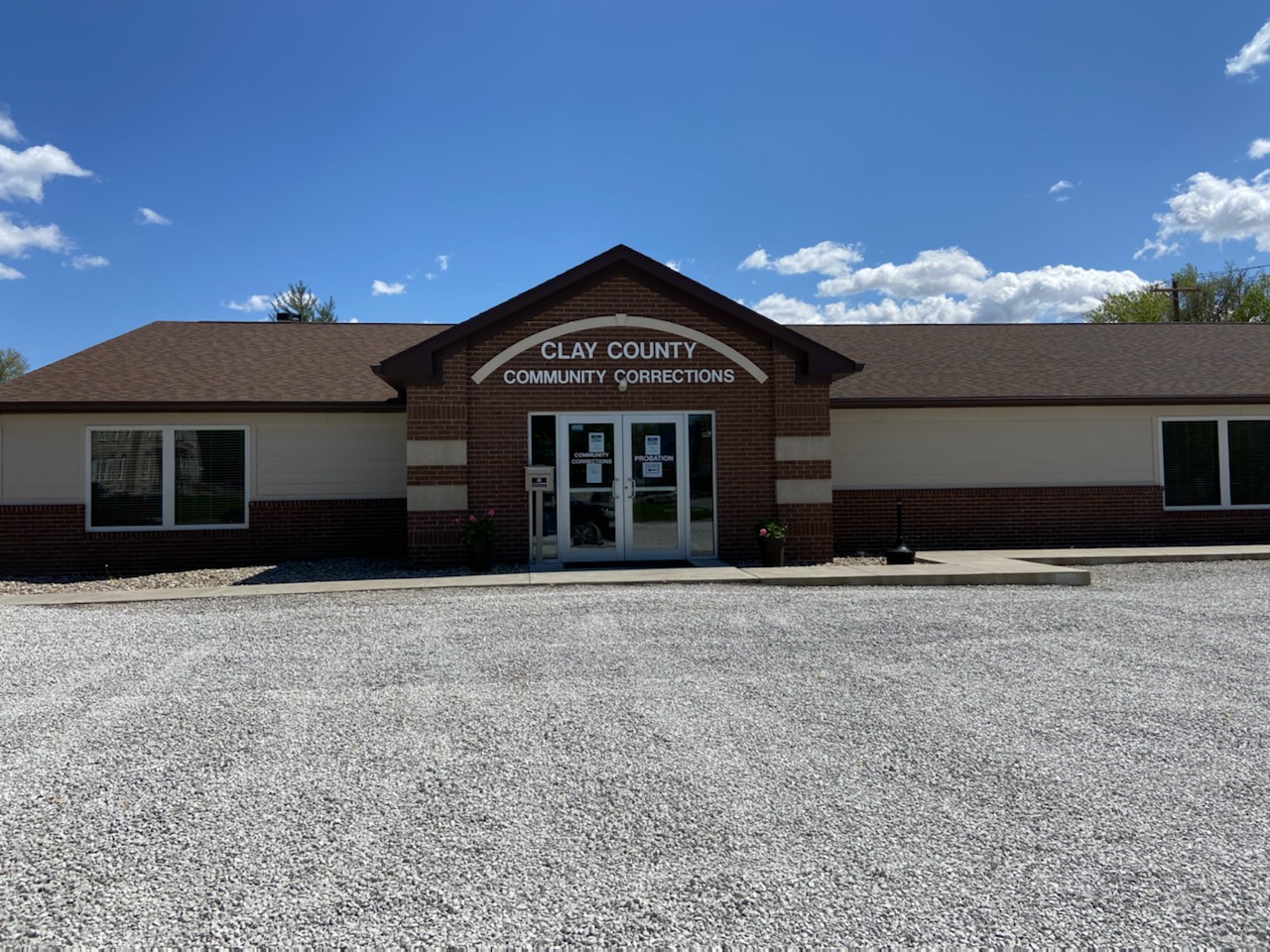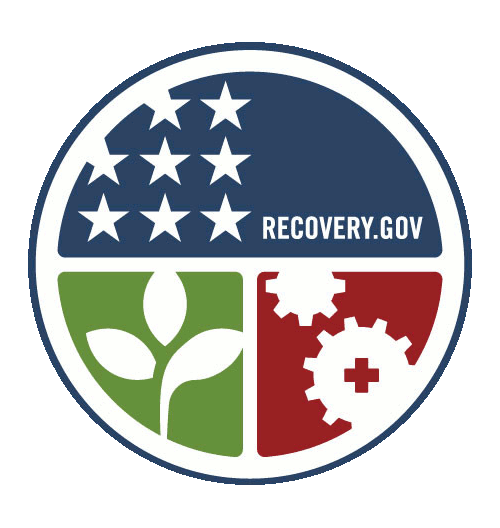120 S. Alabama Street
Brazil, IN 47834
(812) 442-9910
Hours: Monday-Wednesday: 8-4 (closed for lunch noon – 1)
Thursday: 8-7 (closed for lunch noon – 1)
|
Staff: Jordan Forquer, Executive Director Chance Jackson, Case Manager Evan Sutherland, Field Officer Jessica Knowles, Field Officer Jennifer Boyll, Case Manager Jordan Forquer, COPE Community Service Coordinator |
 |
Board Members:
|
Judge Robert Pell |
Jason Brown |
Zach Flaurr |
|
Emily Clarke - Chair |
Brison Swearingen |
Andrea Dawes |
|
Mike Bemis |
Jessica McMillin |
Pete Kikta - Vice Chair |
|
Pete Kikta |
Sara Telechea |
Larry Moss |
|
Judge Joe Trout |
Nicole Ruis-Myers |
Kelsey Stearley |
|
Paul Sinders |
Lynn Romas |
Michael McCullough |
|
Kelsey Stearley |
Mayor Brian Wyndham |
Mark Loudermilk |
Clay County Community Correction’s Vision
The vision of Clay County Community Corrections is to successfully divert non-violent adult and juvenile offenders from incarceration at the state level through electronic home detention, intense supervisory, educational programs and the Community Transition Program.
Clay County Community Correction’s Mission
Our mission is to promote successful re-entry of offenders into the community, to create positive personal changes in the lives of the participants and to reduce recidivism rates by utilizing Evidenced Based Practices.
Links:
Programs:
Community Service
An offender is ordered by the Court to complete a specific number of community service restitution hours. This individual will complete an initial intake with the Community Service Restitution Coordinator wherein the client will sign a Community Service Restitution Terms and Agreement outlining all rules associated with their placement in the component. The Community Service Restitution Coordinator will then place the individual with a specific not-for-profit agency that can best utilize the skills/abilities of the individual. The Community Service Restitution Coordinator then keeps in contact with that agency regarding the client’s placement. The Community Service Restitution Coordinator also maintains all necessary paperwork for each client. This includes payment of the one-time user fee, community service placement, number of hours, and any other relevant information. The Community Service Restitution Coordinator must maintain contact with all placement agencies in order to confirm placements, completion of hours, and any problems associated with the client’s placement.
We work with such agencies such as the Humane Shelter, Brazil City Parks Department, Brazil City Garage, Clay County Courthouse, Clay City Town Hall.
Court Ordered Placement for Education (COPE)
A juvenile is placed in this program after the school determines that they have qualified according to their Student Handbook, and the Judge has found probable cause that the juvenile has qualified. They appear before the Judge the first day of their suspension. The parent(s) or guardian(s) take the juvenile to the alternative school and every day thereafter. At the alternative school, a teacher’s aide is there to administer the work that they would have if they were in the classroom. The juveniles get credit for work done on this program. During one-half (1/2) of their school day, a Community Corrections Work Crew Supervisor picks the juveniles up wherein they will perform community service.
Day Reporting
Clay County Community Corrections receives Court Orders stating the Defendant shall be placed on Day Reporting as a condition of their sentence, probation or bond. By allowing those individuals to report daily at Clay County Community Corrections, they are held accountable for their actions, but are able to continue with their normal work and family obligations. Clients are required to report daily to give their schedules for the next 24 hour period. Our home detention surveillance officer may check on them periodically. Clients are subject to the Day Reporting Terms and Agreement.
Defendants not currently enrolled in other Community Correction programming may report daily as needed for Breathalyzers (PBT) to monitor sobriety.
Drug Screen Program
We also offer a daily call-in program for drug abuse offenders. A substance abuse treatment provider, probation, and/or courts may refer clients to our office for this program. They enter into an agreement which states that drug screens will be $25 until they reach four (4) clean consecutive drug screens wherein the fee is reduced to $20. After four (4) more consecutive drug screens, the fee is then reduced to $15. Clients are required to call in Monday, Wednesday and Friday or Tuesday and Thursday depending on their drug dependency. They also sign an agreement to the above stated terms. The agreement also states the drug screening process.
Electronic Home Detention
A client, male or female, placed in this component shall serve a specified period of time that is determined by a Court Order. When the client is hooked up, the client will sign Home Detention Terms and Agreement outlining all rules associated with their placement in the component and an IRAS (Indiana Risk Assessment) will be completed, if not already done. Based upon their IRAS score, clients who are placed on electronic monitoring will receive random home and employment verifications which will be performed by the home detention/surveillance officer. These visits are unannounced and may be at any time of the day or night. High risk clients will receive a minimum of one (1) visit per week. Moderate risk clients will receive a minimum of two (2) visits per month. Low risk clients will receive a minimum of one (1) visit per month. All clients are encouraged to be employed. If they are not employed, they may be required to perform community service restitution. Case management plans for those participants serving more than 90 days in this component are developed and monitored on a monthly basis. The home detention/surveillance officer will facilitate the treatment plan by serving as the liaison between the client and all applicable service providers, which includes explaining program policies, answering questions, and resolving problems. Areas of focus in the case management plan for those clients will include, but are not limited to, targeting basic needs such as employment and housing, providing or referring Evidenced Based Practice treatment or services, such as alcohol/drug treatment/relapse prevention education, anger management, psychological treatment, and/or cognitive skills programs, conducting on-going risk and needs assessments (IRAS), and providing least restrictive supervision options.
Ignition Interlock
Ignition Interlock clients are referred to us by Court Order. We process the proper paperwork and forward them onto to Total Court Services for installation of the equipment. This allows the offender to drive a vehicle with an ignition interlock device that acts as a portable breathalyzer. If the offender has been drinking, the vehicle will not start.
Soberlink
Soberlink is a portable breathalyzer wherein the offender is set up on a schedule where they get alerts on their cell phones to take a breathalyzer test. This is used per Court Order or as a sanction in the Electronic Home Detention program or through Probation.
Community Transition Program
Community Transition (CTP) is the transition, as defined in IC 11 - 8 - 1 -5.5, is the assignment by the court of a court -committed offender from the Department of Correction to a Community Corrections program or, in a county that does not have a Community Corrections program, a program of supervision by another agency for a period of time from the offender’s CTP commencement date until the offender completes his/her fixed term of imprisonment, less any applicable credit time.
For more information: http://www.in.gov/idoc/files/CTP%20Brochure%20PDF.pdf



